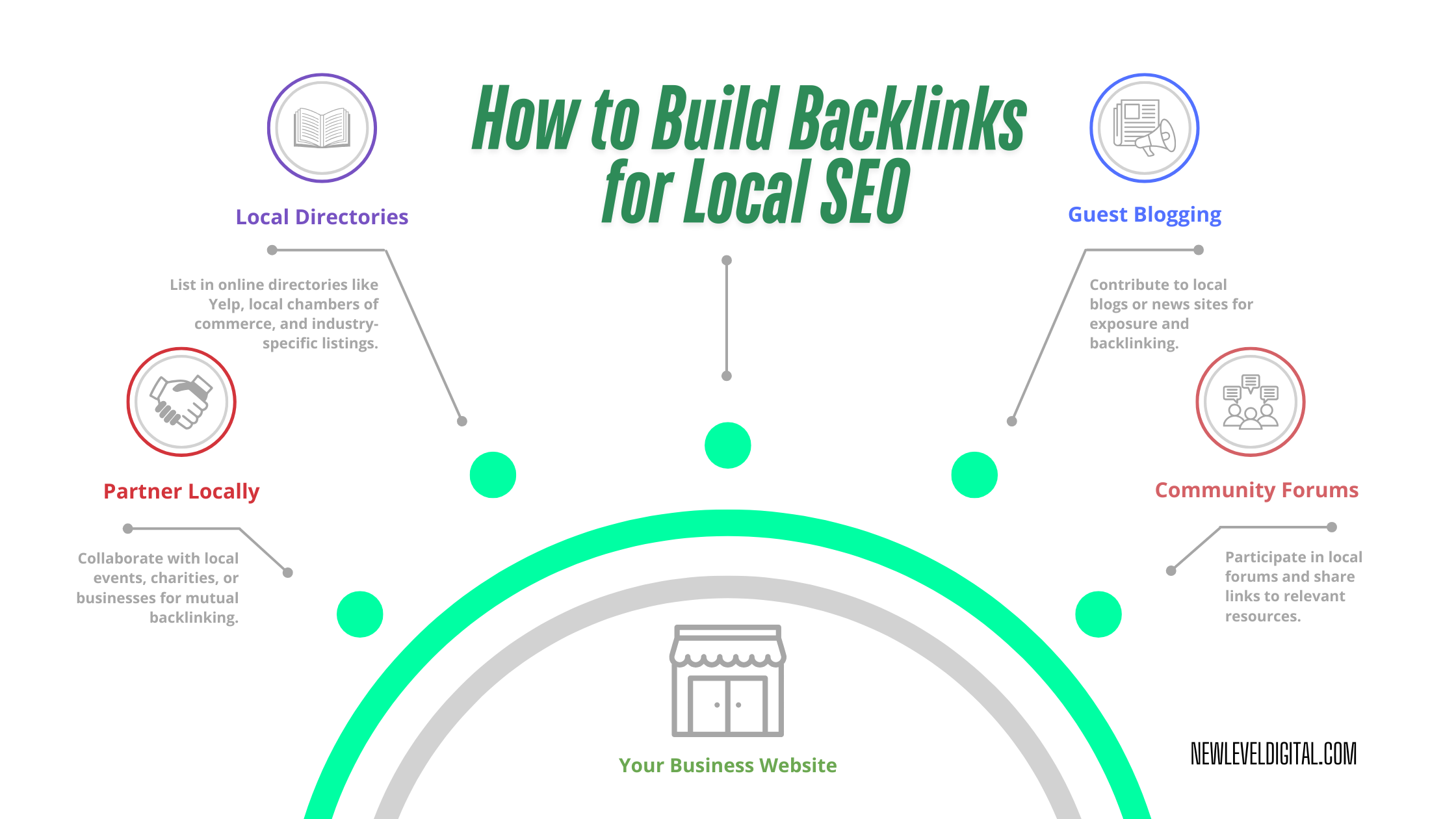Local SEO Strategies to Outrank Competitors
For small businesses, dominating local search results isn't just about being online—it's about being the first choice when nearby customers are looking for products or services.
Search Engine Optimization (SEO) enhances your online presence to rank higher in organic search engine results, driving organic traffic. Implementing effective local SEO strategies improves local search ranking, ensuring that your business appears where it matters most.
Here's how to optimize your online presence and outshine your local competition.
Identify Essential Ranking Factors for Local SEO
1. Optimize Your Google Business Profile
Your Google Business Profile (GBP) is one of the most critical assets for local SEO. A well-optimized GBP helps business owners boost visibility in local search results and Google Maps.
Complete your Business Directory: Ensure your profile includes accurate business details—name, address, phone number, website, and business hours.
Select the Right Business Category: Choose primary and secondary categories that reflect your services.
Use High-Quality Images: Images of your location, products, and services enhance credibility.
Encourage Online Reviews: Ask satisfied customers to leave positive reviews. Respond to positive and negative reviews promptly to show engagement.
Update Regularly: Update your business profile about promotions or events to show activity.
2. Conduct Local Keyword Research
Relevant keyword research for local SEO goes beyond broad terms. Focus on location-specific phrases that potential customers are searching for.
Think Like Your Customers: Consider how locals search for your products or services. Use terms like "near me" or specific neighborhoods.
Analyze Competitors: Check competitor target keywords.
Use Long-Tail Keywords: Phrases like "best organic bakery in [City]" attract more qualified local traffic.
Incorporate in Key Areas: Place local keywords in titles, headers, URLs, and meta descriptions for better SEO impact.
3. Leverage Local SEO Tools
Using the right tools can streamline your local SEO efforts and provide insights to refine your strategy. Examples of SEO tools include:
Google Keyword Planner: Discover relevant local search terms.
BrightLocal: Analyze local search rankings, monitor online reviews, and audit citations.
Moz Local: Manage and ensure consistent business listings across the web.
Whitespark: Identify local citation opportunities and track your local search performance.
4. Utilize Local Link Building
Backlinks from local sources can significantly boost your local SEO authority.
Partner Locally: Collaborate with local events, charities, or businesses for mutual backlinking.
List in Local Directories: Ensure your business is in online directories like Yelp, local chambers of commerce, and industry-specific listings.
Guest Blogging: Contribute to local blogs or news sites for exposure and backlinking.
Engage in Community Forums: Participate in local forums and share links to relevant resources.
Create Location-Specific Content
Content tailored to your local audience enhances local SEO rankings and relevance. Here’s how to craft content that resonates locally:
Write About Local Events: Share insights about local happenings, fairs, or community activities that tie into your business.
Develop Local Guides: Create helpful industry-relevant content, such as "Best Cafes in [City]" or "Top Hiking Trails in [Location]."
Highlight Customer Stories: Feature testimonials and case studies from local customers to build trust and relatability.
Use Local Keywords: Incorporate geo-specific keywords, like your city or neighborhood, into blog posts, service pages, and meta descriptions.
Optimize for Mobile and Voice Search
Ensure your content and website are optimized for voice and mobile searches.
Fast Loading Speed: Optimize images and minimize code to ensure fast page loads.
Mobile-Friendly Design: Ensure your website adapts seamlessly to different screen sizes.
Conversational Keywords: Use natural, question-based phrases that align with voice search queries, like "Where can I find the best coffee in [City]?"
Optimize Social Media for Local Engagement
Social platforms can enhance your online visibility and drive engagement with potential customers.
Local Hashtags: Use city or neighborhood-specific hashtags in your posts.
Geotag Posts: Tag your physical locations in posts to appear in local searches.
Share Local Content: Highlight partnerships, community involvement, or local achievements.
Interact with Local Followers: Engage with other local businesses and followers.
💡 Pro Tip: Creating great content is only part of the process; distributing it effectively maximizes its reach.
Email Newsletters
Collaborate with Local Influencers and Nearby Businesses
Utilize Paid Local Ads
Monitor Local SEO and Adapt Your Strategy
Consistent tracking helps identify what’s working and where to adjust efforts.
Track Metrics: Use Google Analytics and local SEO tools to monitor traffic, rankings, and engagement.
Gather Feedback: Regularly ask customers how they found you and what influenced their choice.
Adjust Tactics: Shift focus based on what’s driving the most local engagement and conversions.
Implementing the right local SEO strategies can set your business apart in competitive local markets. By optimizing your Google Business Profile, creating location-specific content, and leveraging local SEO tools, you can enhance your local search visibility and attract nearby customers.
New Level Digital specializes in helping small and medium-sized businesses boost their local SEO presence. With our expertise in web design, Google Ads, and local SEO, we can elevate your visibility and drive measurable growth.
Ready to dominate your local search results? Contact New Level Digital today and let’s take your business to the next level!


